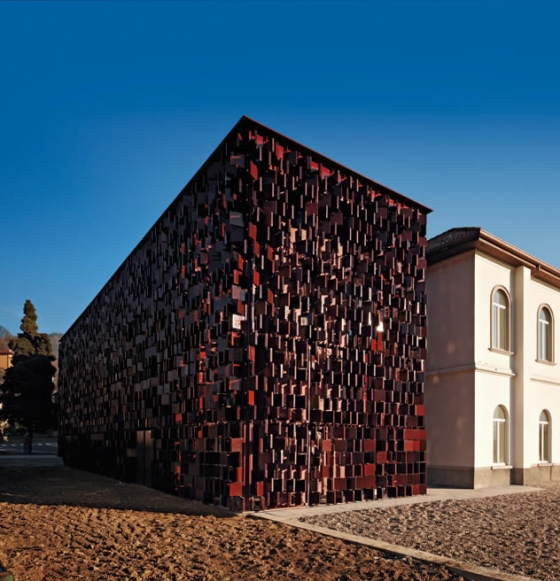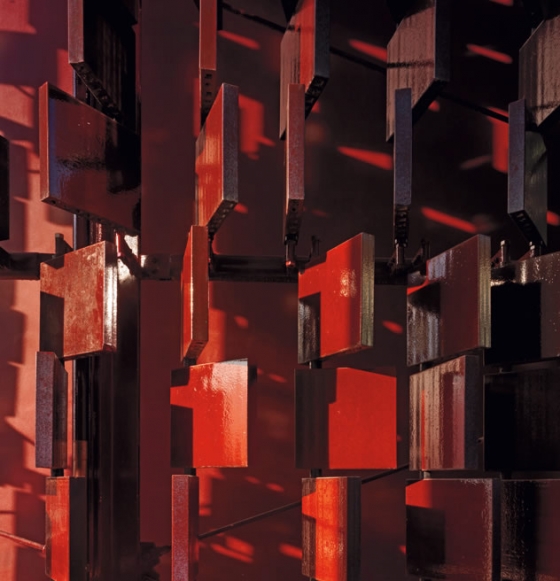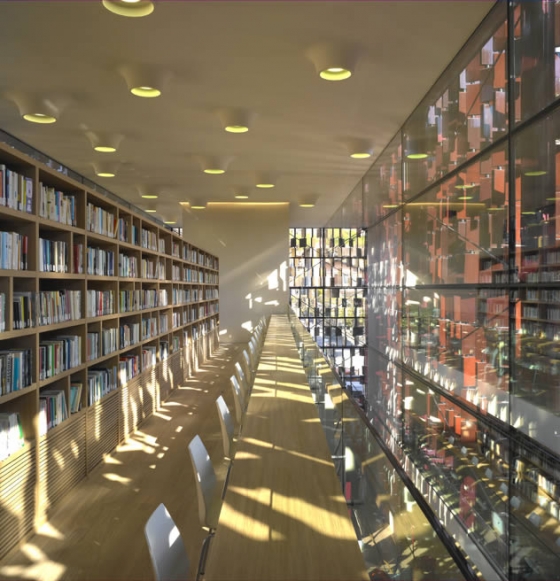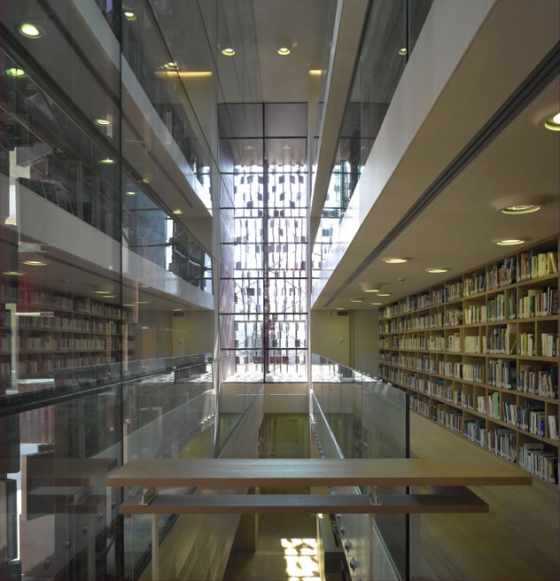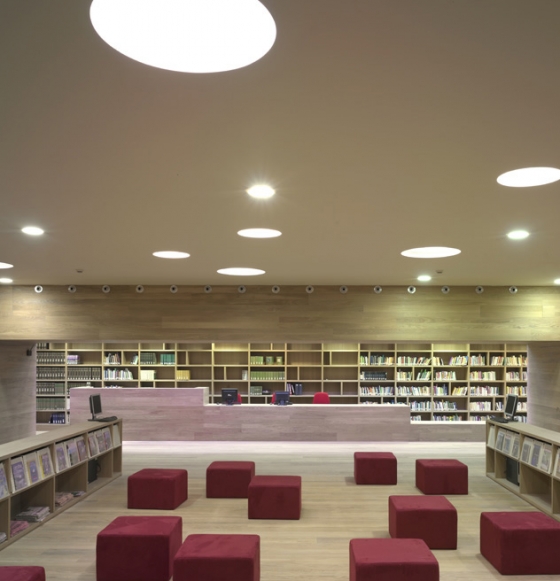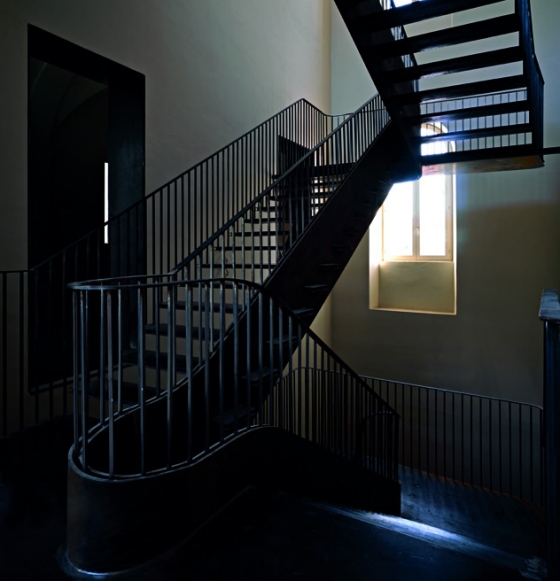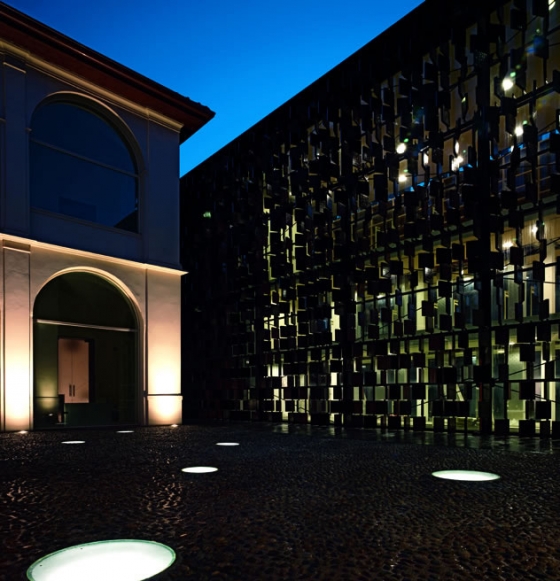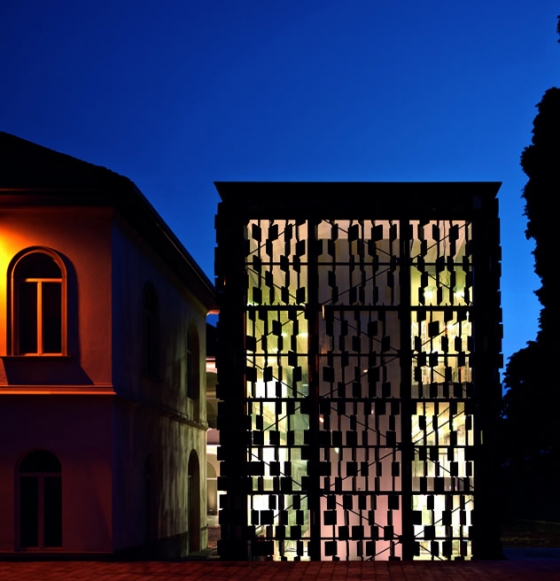A building erected in 1897, intended as a primary school, that has been used for many purposes over the years, first becoming town hall, then kindergarten and finally consulting room. The request of the municipality was to solve the contingent state of abandon, turning the building into a library, to provide the town with a facility dedicated to education and information of the residents.
The strategic position in relation to the urban tissue, the architectural character of the original structure, closed on three sides, and the need for new spaces oriented the project towards the addition of a new wing in the form of a new construction that closes the only open side, that once faced a courtyard.
The new building, connected via the basement, is separated from the existing structure on all sides, thus underscoring a difference that, in spite of the communicating plan, bears witness to a constructive and formal choice that establishes a dialectic contrast with the historical character of the original building; completely transparent, it is characterized by its surface, made of terracotta elements measuring 40x40 centimeters, glazed in carmine red, supported by a structure made from coupled steel profiles. This building technique has made it possible to screen and filter the sunlight.
The choice of earthenware has been suggested precisely by the typical characteristics of the material, its performance as a screen protecting from light and its link to traditional building methods, but also by the contemporary image created thanks to the assembly technique and its durability.
A large room with computers available for consulting is located in the basement, which also provides access to the new building and its reading room that contains, in the manner of a casket, the precious books available for consulting; the triple height is exploited by two projecting mezzanines housing numerous reading desks, while the main study rooms are located on the ground and first floor of the old building.
Zeral srl Costruzioni edili
